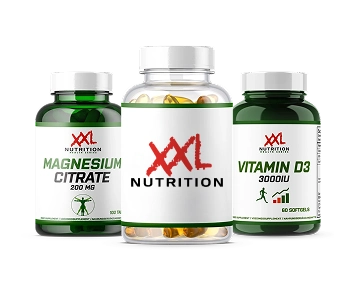| Substance name | Brand name | Indication |
| A. | | |
| Abrocitinib | Cibinqo | Moderate to severe constitutional eczema |
| Acenocoumarol | Sintrom | Anticoagulant, prevention and treatment of thrombosis and embolism |
| Agomelatine | Valdoxan | Treatment of depression |
| Alfentanil | Alfentanil | Pain relief during anaesthesia |
| Allopurinol | Zyloric, Apurin | Gout treatment, prevention of uric acid stones, enzyme disorders |
| Amphetamine | (No specific brand name) | Treatment of schizophrenia and psychotic disorders |
| Amifampridine | Firdapse | Treatment of Lambert-Eaton myasthenic syndrome (LEMS) |
| Amifampridine phosphate | (Possibly the same as amifampridine) | Treatment of Lambert-Eaton myasthenic syndrome (LEMS) |
| Amitriptyline | Sarotex, Tryptizol | Treatment of depression and neuropathic pain |
| Amoxapine | Asendin | Treatment of insomnia |
| Arformoterol | Brovana | Treatment of COPD |
| Aripiprazole | Abilify | Schizophrenia, bipolar disorder, adjunctive therapy for depression |
| Aripiprazole lauroxil | Aristada | Treatment of schizophrenia |
| Articaine | Ubistesin, Ultracain, Septanest, Alphacaine | Local anaesthesia |
| Ascorbic acid | (Commonly known as vitamin C) | Treatment and prevention of vitamin C deficiency |
| Atazanavir | Reyataz | Treatment of HIV infection |
| Atenolol | Tenormin | Hypertension, angina pectoris, post-infarction prevention |
| Atomoxetine | Strattera | Treatment of ADHD |
| Atorvastatin | Lipitor | Cholesterol-lowering agent |
| Avatrombopaq | Doptelet | Thrombocytopenia in chronic liver disease |
| Azathioprine | Imuran | Rheumatoid arthritis, transplant rejection prevention |
| B. | | |
| Belinostat | Beleodaq | Treatment of peripheral T-cell lymphoma |
| Binimetinib | Mektovi | Treatment of metastatic melanoma with a BRAF V600E or V600K mutation |
| Bisoprolol | Concor, Emcor | Treatment of hypertension, ischemic heart disease, and heart failure |
| Boceprevir | Victrelis | Treatment of chronic hepatitis C |
| Brexpiprazole | Rexulti | Treatment of schizophrenia and bipolar I disorder |
| Brivaracetam | Briviact | Treatment of partial seizures in epilepsy |
| Bupivacaine | Marcaine, Naropin, Anesiva | Local or regional anaesthesia |
| Buprenorphine | | Pain management and opioid addiction |
| Bupropion | Wellbutrin, Zyban | Treatment of depression and to aid smoking cessation |
| C. | | |
| Cabotegravir | Vocabria | Treatment of HIV infection |
| Caffeine | (Commonly known as caffeine) | Treatment of fatigue, alertness and sometimes headaches |
| Capecitabine | Xeloda | Treatment of colorectal cancer |
| Cariprazine | Reagila | Treatment of schizophrenia and bipolar I disorder |
| Carisoprodol | Somadril, Carisoma | Treatment of muscle pain and discomfort |
| Carvedilol | Eucardic | Treatment of hypertension, heart failure and angina pectoris |
| Celecoxib | Celebrex | Treatment of osteoarthritis, rheumatoid arthritis and acute pain |
| Cevimeline | Evoxac | Treatment of symptoms of Sjögren’s syndrome |
| Chlorpromazine | Chlorpromazine | Treatment of nausea and vomiting |
| Chloroprocaine | Nesacaine | Local anaesthesia |
| Chloroquine | Nivaquine, Resochin | Prevention and treatment of malaria and amoebiasis |
| Chlorpropamide | (No specific brand name) | Treatment of type 2 diabetes |
| Ciprofloxacin | Ciproxin | Treatment of various bacterial infections |
| Cisplatin | Platinol | Chemotherapy for various types of cancer |
| Citalopram | Cipramil | Treatment of depression |
| Clobazam | Frisium | Treatment of epilepsy and anxiety disorders |
| Clomipramine | Anafranil | Treatment of obsessive-compulsive disorder (OCD) |
| Clopidogrel | Plavix | Antiplatelet therapy, prevention of atherothrombotic events |
| Clozapine | Leponex, Clozaril | Treatment of schizophrenia |
| Codeine | (Commonly known as codeine) | Treatment of mild to moderate pain and as an antitussive |
| D. | | |
| Dabrafenib | Tafinlar | Treatment of metastatic melanoma with a BRAF V600E mutation |
| Daclatasvir | Daklinza | Treatment of chronic hepatitis C |
| Dapsone | Dapsone | Treatment of leprosy and dermatitis herpetiformis |
| Darifenacine | Enablex | Treatment of overactive bladder |
| Desflurane | Suprane | Used for inhalation anaesthesia |
| Desipramine | Norpramin, Pertofran | Treatment of depression |
| Desvenlafaxine | Pristiq | Treatment of depression |
| Deutetrabenazine | Austedo | Treatment of movement disorders in Huntington’s disease |
| Dexamfetamine | (No specific brand name) | Treatment of ADHD |
| Dexlansoprazole | Dexilant | Treatment of gastroesophageal reflux disease (GERD) |
| Dextromethorphan | (Various cough medicines) | Antitussive for dry cough |
| Diazepam | Stesolid, Diazemuls, Valium | Treatment of anxiety disorders and muscle spasms |
| Diclofenac | Voltaren, Cataflam | Treatment of pain and inflammation |
| Digoxin | Lanoxin, Digoxin | Treatment of heart failure and cardiac arrhythmias |
| Dolutegravir | Tivicay | Treatment of HIV infection |
| Donepezil | Aricept | Treatment of Alzheimer’s disease |
| Doxepin | Sinequan | Treatment of depression and insomnia |
| Dronabinol | Marinol | Treatment of nausea associated with chemotherapy, appetite stimulation |
| Duloxetine | Cymbalta | Treatment of depression and generalised anxiety disorder |
| E. | | |
| Efavirenz | Sustiva, Stocrin | Treatment of HIV infection |
| Elagolix | Orilissa | Treatment of endometriosis and uterine fibroids |
| Eliglustat | Cerdelga | Treatment of Gaucher disease type 1 |
| Eltrombopag | Revolade | Treatment of thrombocytopenia in patients with chronic hepatitis C |
| Enfluraan | Suprane | Used for inhalation anaesthesia |
| Erdafitinib | Balversa | Treatment of metastatic urothelial cancer |
| Erlotinib | Tarceva | Treatment of non-small cell lung cancer |
| Escitalopram | Lexapro | Treatment of depression and generalised anxiety disorder |
| Esomeprazole | Nexium | Treatment of gastroesophageal reflux disease (GERD) |
| Estradiol | Progynova, Estrofem, Estronorm | Hormone replacement therapy for menopausal symptoms |
| Estriol | Oestrogeel, Estriol, Gynest, Oestriol | Hormone replacement therapy for menopausal symptoms |
| Ethinylestradiol | Stediril, Microgynon, Mercilon, and many others | Contraception and hormone replacement |
| F. | | |
| Fenprocoumon | Marcoumar | Treatment and prevention of thrombosis and embolism |
| Fentanyl | | Treatment of severe pain |
| Phenytoin | Diphantoine, Epanutin | Treatment of epileptic seizures |
| Fesoterodine | Toviaz | Treatment of overactive bladder |
| Flecainide | Tambocor | Treatment of cardiac arrhythmias |
| Flibanserine | Addyi | Treatment of hypoactive sexual desire disorder in premenopausal women |
| Flucytosine | Ancotil | Treatment of fungal infections |
| Fluorouracil | Efudix, Adrucil | Treatment of various cancers, including colorectal and breast |
| Fluoxetine | Prozac, Fontex | Treatment of depression |
| Flupentixol | Fluanxol | Treatment of schizophrenia and other psychotic disorders |
| Flurbiprofen | Froben, Ansaid | Treatment of pain and inflammation |
| Flutamide | Eulexin | Treatment of prostate cancer |
| Fluvastatin | Lescol | Treatment of elevated cholesterol levels |
| Fluvoxamine | Fevarin | Treatment of depression and obsessive-compulsive disorder |
| Folic acid | (Commonly known as folic acid) | Dietary supplement for pregnant women and in cases of folic acid deficiency |
| Fosphenytoin | Pro-Epanutin | Treatment of epileptic seizures |
| G. | | |
| Galantamine | Reminyl | Treatment of mild to moderate symptoms of Alzheimer’s disease |
| Gefitinib | Iressa | Treatment of non-small cell lung cancer |
| Glibenclamide | Daonil | Treatment of type 2 diabetes mellitus |
| Glimepiride | Amaryl | Treatment of type 2 diabetes mellitus |
| Glipizide | Glibenese, Minodiab | Treatment of type 2 diabetes mellitus |
| H. | | |
| Haloperidol | Haldol | Treatment of schizophrenia and acute psychoses |
| Halothane | Fluothane | Used for inhalation anaesthesia |
| Hydralazine | Apresoline | Treatment of hypertension |
| Hydrocodone | (No specific brand name) | Treatment of pain |
| Hydromorphone | | Treatment of moderate to severe pain |
| Hydroxychloroquine | Plaquenil | Treatment of rheumatoid arthritis and lupus erythematosus |
| I. | | |
| Ibuprofen | Brufen, Nurofen | Pain and inflammation relief |
| Iloperidone | Fanapt | Treatment of schizophrenia |
| Imipramine | Tofranil | Treatment of depression |
| Indacaterol | Onbrez Breezhaler | Treatment of COPD |
| Irbesartan | Aprovel, Irbesartan | Treatment of hypertension and diabetic nephropathy |
| Irinotecan | Campto | Treatment of colorectal cancer |
| Isoflurane | Forane | Used for inhalation anaesthesia |
| Isoniazide | Rimifon | Treatment of tuberculosis |
| L. | | |
| Lacosamide | Vimpat | Treatment of partial seizures in epilepsy |
| Lansoprazole | Prezal, Lansoprazole | Treatment of GERD |
| Lesinurad | Zurampic | Treatment of hyperuricaemia in gout |
| Levofloxacin | Tavanic | Treatment of bacterial infections |
| Levomethadone | | Treatment of opioid addiction |
| Lidocaïne | Xylocaine | Local or regional anaesthesia |
| Lisdexamfetamine | Vyvanse | Treatment of ADHD |
| Lofexidine | Lucemyra | Treatment of opioid withdrawal symptoms |
| Loratadine | Claritine | Treatment of allergic reactions |
| Lorazepam | Temesta | Treatment of anxiety disorders |
| Lornoxicam | Xefo | Pain and inflammation relief |
| Losartan | Cozaar | Treatment of hypertension and diabetic nephropathy |
| Lovastatin | Mevacor, Lovastatin | Treatment of elevated cholesterol levels |
| Lusutrombopag | Mulpleta | Treatment of thrombocytopenia |
| M. | | |
| Mafenide | (No specific brand name) | Treatment of bacterial infections in burns |
| Mavacamten | Camzyos | Treatment of obstructive HCM |
| Meclizine | (No specific brand name) | Treatment of dizziness and motion sickness |
| Meloxicam | Mobic | Pain and inflammation relief |
| Mepivacaine | Scandonest | Local anaesthesia |
| Mercaptopurine | Puri-Nethol | Treatment of acute lymphatic leukaemia |
| Metamuzil | Dolamizol | Treatment of severe pain and fever. |
| Methadone | Symoron, Methadone | Treatment of pain and opioid dependence |
| Methotrexate | Metoject, Ledertrexate | Treatment of cancer and autoimmune diseases |
| Methoxyflurane | Penthrane | Inhalation anaesthesia |
| Methylthioninium | Provocholine | Treatment of methaemoglobinaemia |
| Metoclopramide | Primperan | Treatment of GERD and gastroparesis |
| Metoprolol | Selokeen, Metoprolol | Treatment of hypertension and heart failure |
| Mirabegron | Betmiga | Treatment of overactive bladder |
| Mirtazapine | Remeron | Treatment of depression |
| Mivacurium | Mivacron | Muscle relaxant for anaesthesia |
| Moclobemide | Aurorix | Treatment of depression |
| Modafinil | Modiodal | Treatment of excessive sleepiness |
| Morphine | | Treatment of severe pain |
| Moxifloxacin | Avelox | Treatment of bacterial infections |
| N. | | |
| NegGram | Treatment of urinary tract infections |
| Naltrexone | | Treatment of addiction |
| Nateglinide | | Treatment of type 2 diabetes mellitus |
| Sodium nitrite | (No specific brand name) | Antidote for cyanide poisoning |
| Nebivolol | Nebilet | Treatment of hypertension |
| Nefazodone | Viramune | Treatment of depression |
| Nevirapine | Viramune | Treatment of HIV infection |
| Nilotinib | Tasigna | Treatment of chronic myeloid leukaemia |
| Nitrofurantoin | Furadantin | Treatment of urinary tract infections |
| Norfloxacin | Noroxin | Treatment of bacterial infections |
| Nortriptyline | Nortrilen | Treatment of depression |
| O. | | |
| Olanzapine | Zyprexa | Treatment of schizophrenia and bipolar disorder |
| Oliceridine | Olinvyk | Treatment of acute pain |
| Omeprazole | Losec, Omeprazole | Treatment of GERD |
| Ondansetron | Zofran | Nausea and vomiting during chemotherapy |
| Oxazepam | Seresta | Treatment of anxiety disorders |
| Oxycodone | OxyContin, Oxynorm | Treatment of pain |
| P. | | |
| Paliperidone | Invega | Treatment of schizophrenia |
| Palonosetron | Aloxi | Prevention of postoperative nausea |
| Pantoprazole | Pantozol | Treatment of GERD |
| Paroxetine | Seroxat | Treatment of depression and anxiety disorders |
| Pazopanib | Votrient | Treatment of renal cell carcinoma |
| Peginterferon alfa-2a | Pegasys | Chronic hepatitis C |
| Peginterferon alfa-2b | Pegintron | Chronic hepatitis C |
| Pegloticase | Krystexxa | Treatment of refractory gout |
| Perphenazine | Trilafon | Treatment of schizophrenia |
| Pimozide | Orap | Treatment of Tourette syndrome |
| Pioglitazone | Actos | Treatment of type 2 diabetes mellitus |
| Piroxicam | Feldene | Pain and inflammation relief |
| Pitavastatin | Livalo | Treatment of elevated cholesterol levels |
| Pitolisant | Wakix | Treatment of narcolepsy |
| Prasugrel | Efient | Prevention of thrombosis |
| Pravastatin | Pravachol | Treatment of elevated cholesterol levels |
| Prilocaine | Citanest | Local anaesthesia |
| Primaquine | Malarone | Prevention and treatment of malaria |
| Probenecide | Probenecide | Maintenance treatment for gout |
| Propafenone | Rytmonorm | Treatment of cardiac arrhythmias |
| Propranolol | Inderal, Dociton | Treatment of hypertension and angina pectoris |
| Protriptyline | Vivactil | Treatment of depression |
| Q. | | |
| Quetiapine | Seroquel | Treatment of schizophrenia and bipolar disorder |
| R. | | |
| Rabeprazole | Pariet | Treatment of GERD |
| Raltegravir | Isentress | |
| Ranolazine | Ranexa | Treatment of angina pectoris |
| Rasburicase | Fasturtec | Treatment of tumour lysis syndrome |
| Ribavirin | Copegus, Rebetol | Chronic hepatitis C |
| Rimegepant | Nurtec ODT | Treatment of migraine attacks |
| Risperidone | Risperdal | Treatment of schizophrenia |
| Romiplostim | Nplate | Thrombocytopenia in ITP |
| Ropivacaine | Naropin | Local or regional anaesthesia |
| Rosiglitazone | Avandia | Treatment of type 2 diabetes mellitus |
| Rosuvastatin | Crestor | Treatment of elevated cholesterol levels |
| Rucaparib | Rubraca | Treatment of ovarian cancer |
| S. | | |
| Sacituzumab govitecan | Trodelvy | Treatment of metastatic breast cancer |
| Sertindole | Serdolect | Treatment of schizophrenia |
| Sertraline | Zoloft | Treatment of depression |
| Sevoflurane | Sevorane | Inhalation anaesthesia |
| Simeprevir | Olysio | Treatment of hepatitis C |
| Simvastatin | Zocor | Treatment of elevated cholesterol levels |
| Siponimod | Mayzent | Treatment of multiple sclerosis |
| Sofosbuvir | Sovaldi | Treatment of hepatitis C |
| Sufentanil | | Strong pain relief |
| Sulfadiazine | | Treatment of bacterial infections |
| Sulfamethoxazole | Bactrim, Septra | Treatment of bacterial infections |
| Sulfasalazine | Salazopyrin | Treatment of rheumatoid arthritis and IBD |
| Sulfisoxazole | | Treatment of bacterial infections |
| Suxamethonium | Anectine | Muscle relaxant during anaesthesia |
| Synthetic conjugated oestrogens | Premarin | Hormone replacement therapy |
| T. | | |
| Tacrolimus | Prograf | Prevention of organ rejection |
| Tafenoquine | Krintafel | Prevention and treatment of malaria |
| Tamoxifen | Nolvadex | Breast cancer treatment |
| Tamsulosin | Flomax | Treatment of BPH |
| Tegafur | | Treatment of colorectal cancer |
| Telaprevir | Incivo | Treatment of hepatitis C |
| Tenoxicam | Mobiflex | Pain and inflammation relief |
| Terbinafine | Lamisil | Treatment of fungal infections |
| Tetrabenazine | Xenazine | Treatment of Huntington’s disease |
| Tetracaine | Pontocaine | Local anaesthesia |
| Thioguanine | Lanvis | Treatment of leukaemia |
| Thioridazine | Mellaril | Treatment of schizophrenia |
| Tibolon | Livial | Hormone replacement therapy |
| Ticagrelor | Brilique | Prevention of thrombosis |
| Tolazamide | Tolinase | Treatment of type 2 diabetes |
| Tolbutamide | Orinase | Treatment of type 2 diabetes |
| Tolterodine | Detrusitol | Treatment of overactive bladder |
| Tramadol | Ultram, Tramal | Moderate to severe pain |
| Trimipramine | Surmontil | Treatment of depression |
| Tropisetron | | Treatment of nausea caused by chemotherapy |
| U. | | |
| Umeclidinium | Incruse Ellipta | Treatment of COPD |
| Upadacitinib | Rinvoq | Treatment of rheumatoid arthritis |
| V. | | |
| Valbenazine | Ingrezza | Treatment of tardive dyskinesia |
| Venlafaxine | Effexor XR | Treatment of depression and anxiety |
| Viloxazine | Qelbree | Treatment of ADHD |
| Vincristine | Oncovin | Treatment of leukaemia and other cancers |
| Voriconazole | Vfend | Treatment of fungal infections |
| Vortioxetine | Brintellix | Treatment of depression and anxiety |
| W. | | |
| Warfarin | Coumadin, Marevan | Prevention of thrombosis and embolism |
| Z. | | |
| Zuclopenthixol | Cisordinol | Treatment of schizophrenia and other psychoses |






























